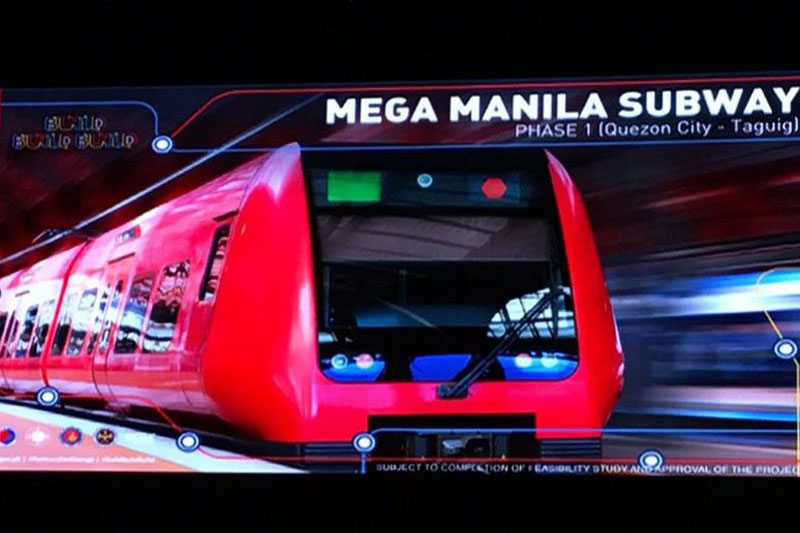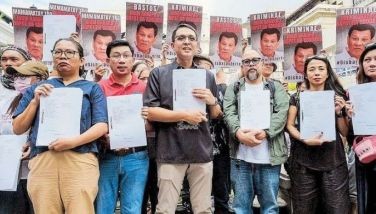Philippine, Japan ink P51-billion Metro Manila subway deal

Finance Secretary Carlos Dominguez III, representing the Philippine government, and newly appointed JICA chief representative Yoshio Wada signed the loan agreement yesterday for the big-ticket infrastructure project under the administration’s Build, Build, Build program. File photo
MANILA, Philippines — The Japan International Cooperation Agency (JICA) has extended a 104.53-billion-yen loan (about P51.34 billion) to the Philippine government for the construction of the Metro Manila Subway Project (Phase 1), which is expected to address traffic congestion.
Finance Secretary Carlos Dominguez III, representing the Philippine government, and newly appointed JICA chief representative Yoshio Wada signed the loan agreement yesterday for the big-ticket infrastructure project under the administration’s Build, Build, Build program.
“I would like to thank the Japan International Cooperation Agency for its support in making this subway project a reality,” Dominguez said.
For Wada, the development assistance serves as a testament of JICA’s support for the Philippines’ economic agenda.
“As the Philippines’ trusted partner in development for many years, JICA offers our support to the construction of the subway project so the Philippines can sustain its growth trajectory and improve the quality of life of many Filipinos through seamless mobility and connectivity,” Wada said.
According to Dominguez, the ¥104.53-billion official development assistance (ODA) represents the first tranche of loans to be extended by JICA for the first phase of the subway project.
He said it carries an interest rate of 0.10 percent per annum for non-consulting services and 0.01 percent per annum for consulting services, with a repayment period of 40 years, inclusive of a 12-year grace period.
The Metro Manila Subway Project (Phase 1), which has a total project cost of P356.96 billion, is the biggest single project under the Build, Build, Build program of the Duterte administration.
This phase, which covers the Central Zone, involves the construction of about 30 kilometers of underground railway from Mindanao Avenue to the Ninoy Aquino International Airport. It will have 14 stations and possibly one or two more extension stations.
It also includes a depot in Valenzuela, electro-mechanical systems and rolling stock and the establishment of a Philippine Railway Institute.
Dominguez said the Philippine government commits to expedite the construction of the railway system.
“We are targeting May 2022 to begin operation of the first three of the subway stations – Mindanao Avenue-Quirino Highway, Tandang Sora and North Avenue. The entire Central Zone will be operational by 2025, including the commercial space for the subway stations that will help defray the cost of operating this facility,” he added.
In its entirety, the subway project envisioned by the government will also include a North Zone, which will be extended to Bulacan, and a South Zone that will extend to Cavite.
JICA said the Metro Manila Subway Project was identified in the JICA-National Economic and Development Authority Roadmap for Transport Infrastructure Development for Metro Manila and its Surrounding Areas. It is seen as one of the solutions to the rising traffic costs in Metro Manila.
Earlier, JICA presented its Follow-Up Survey on the Roadmap for Transport Infrastructure Development for the Greater Capital Region, which showed that the worsening traffic situation in Metro Manila leads to P3.5 billion in lost opportunities per day for the Philippine government.
- Latest
- Trending

































